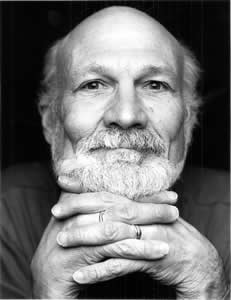Jesus, Violence, and Power
This was a devotion written for Great Bridge United Methodist Church. Over the next year the staff are reading Brian McLaren's book We Make the Road by Walking together. Throughout the year I will be posting devotionals and responses to book study.
It's interesting that I am leading this week's staff devotion on the coattails of last week's confirmation lesson. This past week our lesson focused on what Israel was expecting in the Messiah versus what Jesus taught and did.
When we look back on what Israel was expecting from a Messiah the picture is different from what we see in Christ. Most Jews living in Roman occupied territory expected the Messiah would, "lead an armed uprising". Our confirmands described this as Jesus with ripped muscles and a sleeveless shirt rolling into Jerusalem in a Humvee with a machine gun on top. According to the confirmands this would be a Messiah who looked and acted more like Rambo and less like Mother Theresa.
 What we find in Christ is something different. Christ wasn't Rambo, Jason Bourne, or Spartacus. But still in Christ we find all of the expectations of Israel fulfilled. We find all of the covenants created between God and humanity, going all the way be to the garden, fulfilled. And we find that God is in the business of liberation rather than violence.
What we find in Christ is something different. Christ wasn't Rambo, Jason Bourne, or Spartacus. But still in Christ we find all of the expectations of Israel fulfilled. We find all of the covenants created between God and humanity, going all the way be to the garden, fulfilled. And we find that God is in the business of liberation rather than violence.
The idea that God is seeking non-violent resolutions to violent problems can be troublesome for many of us, especially those who live with and work with people who serve in the military or security fields. We live in a nation with the mightiest fighting force the world has ever seen. If there is a problem in the world, an unjust attack on innocents, we have the ability to respond quickly with a level of retaliation that few if any can match.
Here's the thing though, Jesus taught us a different way:
"Violence cannot defeat violence. Hate cannot defeat hate. Fear cannot defeat fear. Domination cannot defeat domination" - Brian McLaren, We Make the Road by Walking
If we are truly to live as disciples of Christ it means that nonviolence is our first and only response. And this runs contrary to what our American imperialism, kick ass and take name upbringing tells us. We are taught that we can and should squash any threat that we perceive as a threat to our liberty or freedom. But when we experience the freedom offered to us by Christ we are reformed and reorientanted to seek peace through peaceful means.
I find it hard to reconcile the fact that the front runners for the GOP Presidential nomination, who are actively courting the vote of Christians, are willing to speak at length about "carpet bomb" an enemy in "oblivion".
I find it hard to reconcile that the church, the bride of someone who sought liberation through peace, is being courted by someone who said, "I don't know if sand can glow in the dark but we will find out."
I find it hard to reconcile that the church is being courted by someone who is living in fear of the darkness rather than being a light to the world.
"I don't know if sand can glow in the dark but we will find out."
We live in a world right now that is gripped in fear and violence. And one just leads to the other in a vicious cycle that does not seem to have an end in sight.
Jesus proclaims that he has come as a liberating king. Liberating Israel from the violent occupiers who have held her in its grasp for too long. But that liberation was not just for Israel, it is also liberation for us today. The liberating authority for which Jesus was crucified offers us the opportunity to no longer be bound by violence because through Christ we see that there is no other way to live.

Two years ago I had to the opportunity to hear Stanley Hauwerwas speak at Virginia Theological Seminary. This was one of those theological-nerd moments for me that my wife still makes fun of me over. Hauerwas spoke about "Gospel obligation to witness to the imperative of peace making." One of the highlights for me was when he spoke about not withdrawing from the world as a pacifist. Often times nonviolence is associated with withdrawal from the problems of the world. Hauwerwas said, "you must confront and not allow wrongdoings to fester because it can turn into extreme violence." The response from Christians though is framed through the lense of the cross and resurrection. Our response to wrongdoings must begin with conversation and development as alternatives to armed conflict.
The cross and resurrection of Christ are now the basis of the Christian response to war. Not carpet bombing.
According to Hauerwas conversation and development are now tools Christians should be using as alternatives to war. Not carpet bombing.
Christians non-violent approach to conflict is a way that we can make the necessity of war no longer a reality. Just as when Jesus came onto the scene 2000+ years ago and rocked everyone's expectations, so too much we today as disciples of Christ offer alternatives to what is expected when it comes to the struggle against violence. Christological living means that we live through the resurrection that did not respond to Christ's death with the sword but instead responded with forgiveness and grace.
“Christians are called to live nonviolently not because we believe nonviolence is a strategy to rid the world of war, but in a world of war as faithful followers of Christ, we cannot imagine being anything other than nonviolent.” - Stanley Hauerwas
Power does come through the ability to "carpet bomb" a group of people into "oblivion" yes. But we see a greater power in someone who achieved all of his goals through peace and non-violence. A person who did not raise up a sword or army when presented with the chance. Power is being able to make change without the threat of violence.